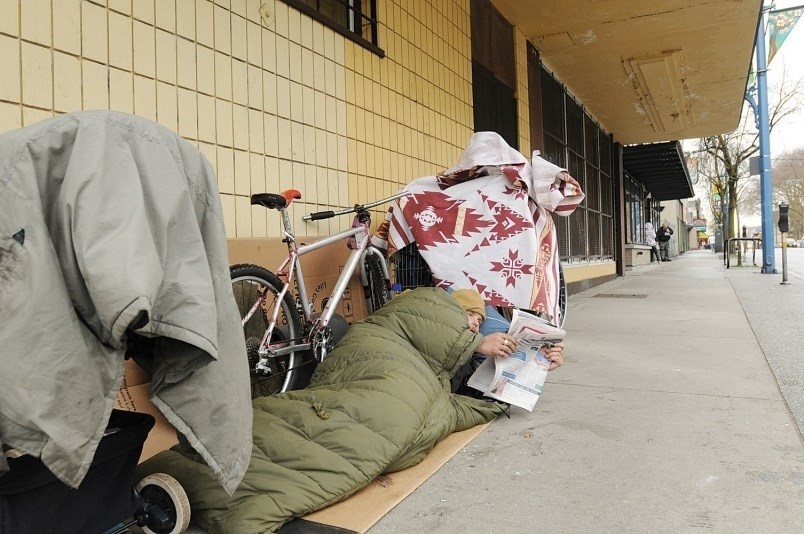The province has declared Oct. 13 to 19 Homelessness Action Week in B.C. to acknowledge the work of organizations and advocates trying to help people experiencing homelessness.
“We hope to increase awareness and empathy, and encourage more people to get involved with local organizations and solutions,” Shane Simpson, minister of social development and poverty reduction, and Selina Robinson, minister of municipal affairs and housing, said in a joint statement released Saturday morning.
“As a government, we’re committed to building on the successes we have seen responding to homelessness with proactive and preventative initiatives to stop homelessness before it happens.”
2019 has been another record-breaking year for homelessness in Vancouver. The city’s annual homeless count, which is conducted every March, counted 2,223 homeless people in the city this year — 1,609 were classified as sheltered and 614 unsheltered.
That’s an overall increase of 42 people from the 2018 count, which recorded 2,181 people as homeless.
Counts over the last five years have shown a steady increase in the number of homeless in the city, jumping from 1,746 in 2015 to 2,223 this year.
In 2005, it was 1,364.
The increase came despite the opening of hundreds of temporary modular housing units across the city since the 2018 homeless count. When the count was completed in March, there was 528 units open in Vancouver. That number now sits at more than 600.
“Homelessness is a complex issue causing deep and lasting impacts on the lives of too many people in B.C.,” the statement from Simpson and Robinson reads. “We see it every day on our streets and in encampments that pop up in our communities. It can also be invisible — people sleeping on couches or staying in harmful relationships for shelter. It is personal stories of hardship and struggle, but it is also the result of system failures, impossibly high rents, barriers to support and poverty.”
— With files from Mike Howell
@JessicaEKerr
jkerr@vancourier.com



